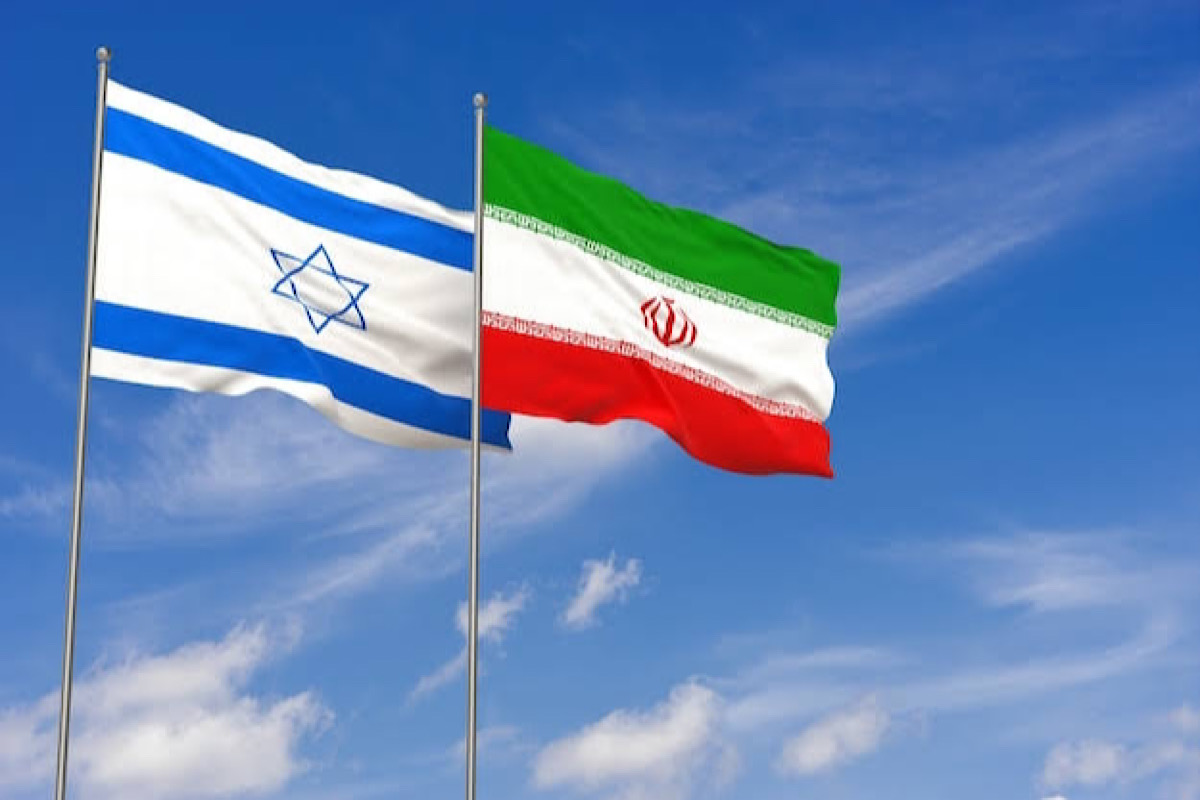Iran rules out nuclear talks under pressure, intimidation
Iran's Foreign Minister Seyed Abbas Araghchi stressed Monday that his country will not consider holding nuclear negotiations under pressure and intimidation.
Iran’s stance toward Israel has long been marked by aggressive rhetoric and proxy warfare, but the likelihood of a direct confrontation remains low.

Israel and Iran Flags (File Photo)
Iran’s stance toward Israel has long been marked by aggressive rhetoric and proxy warfare, but the likelihood of a direct confrontation remains low. The reasons behind this calculated restraint lie in Iran’s broader strategic goals, which prioritise regional influence and ideological propagation over the Palestinian cause. Despite its fiery anti-Israel rhetoric, Iran is acutely aware of the costs of a direct war with Israel, both in terms of military engagement and the potential destabilisation of its fragile economy. Historically, Iran’s approach to Israel has been fluid, shifting dramatically after the 1979 Islamic Revolution.
Prior to this, Iran maintained diplomatic relations with Israel, reflecting a more pragmatic foreign policy that distanced itself from Arab-Israeli conflicts. However, the revolution brought a seismic change, with the new leadership adopting a vehemently anti-Israel stance as part of its broader rejection of Western influence in the region. This shift was not necessarily about the Palestinian cause but more about positioning Iran as a leader of the Islamic world, countering both American influence and the Sunni-dominated Arab states. In recent years, Iran’s support for groups like Hamas and Hezbollah has been a cornerstone of its regional strategy.
Advertisement
By backing these groups, Iran can exert influence in the Israeli-Palestinian conflict without directly engaging in it. This ap proach allows Tehran to maintain its anti-Israel credentials while avoiding the devastating consequences of a full-scale war. The recent assassination of Hamas leader Ismail Haniyeh in Tehran has escalated tensions, but Iran’s response has been measured, relying on threats and proxy actions rather than direct military engagement. The logic behind this restraint is clear. A direct war with Israel would not only strain Iran’s military capabilities but also divert attention from its primary objective: the spread of the Shia revolution and the consolidation of its influence in the region.
Advertisement
Moreover, Iran’s economy, already weakened by years of sanctions and mismanagement, would be ill-equipped to handle the additional burden of war. For Tehran, the Palestinian cause serves more as a tool to rally support and justify its anti-American and anti-Israel stance than a genuine priority. Iran’s strategic patience is evident in its approach to Israel. While it continues to issue threats and engage in proxy warfare, it has so far avoided crossing the line into open conflict. This calculated approach allows Iran to maintain pressure on Israel without risking a direct confrontation that could spiral out of control. Tehran’s leaders are well aware that a war with Israel would not only be costly but also counter-productive to their long-term goals.
Iran’s anti-Israel rhetoric and support for Palestinian groups like Hamas should be seen in the context of its broader regional strategy. Iran will continue to leverage its influence through proxies and strategic patience, keeping the conflict alive without fully committing to it. This approach allows Iran to maintain its ideological stance while avoiding the catastrophic consequences of a direct confrontation with Israel.
Advertisement